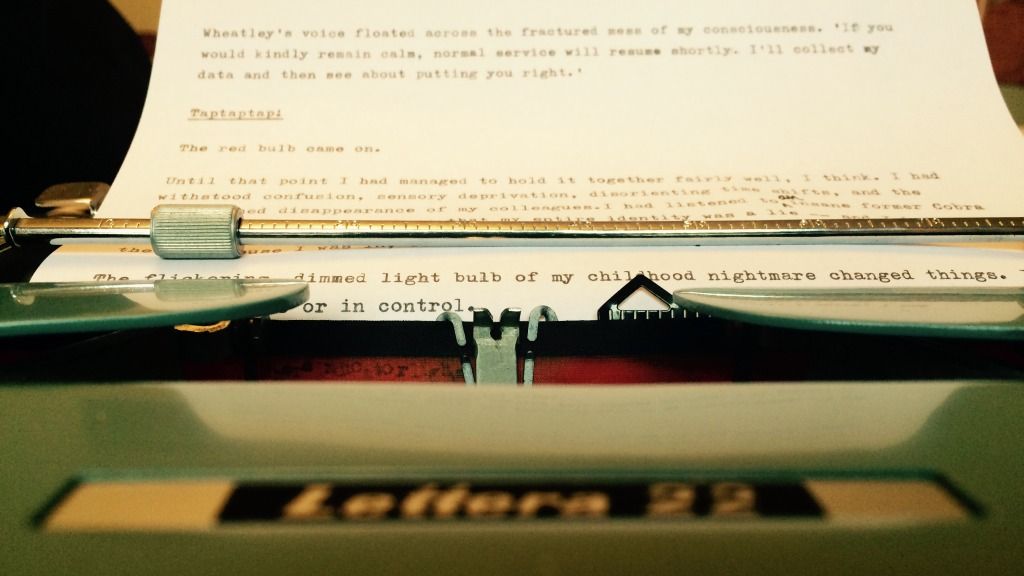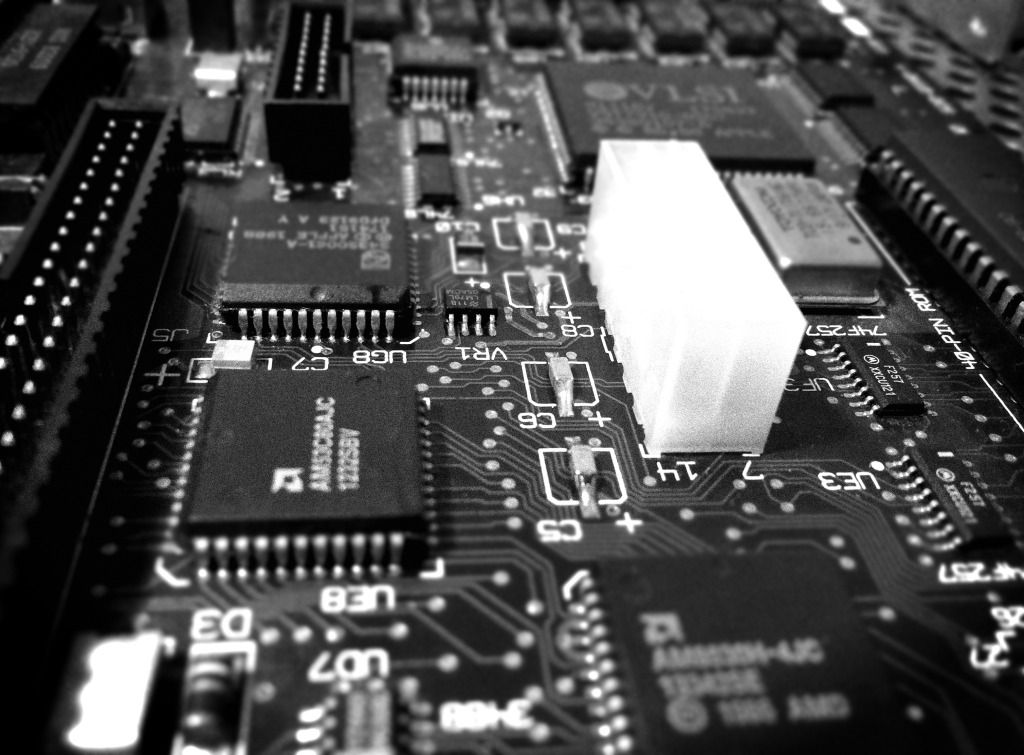Book review and interview: Low Fidelity by Riccardo Mori

In this post I’d like to introduce my readers to an innovative and talented author. Riccardo Mori runs the blogs Morrick.me (commentary on culture, technology and photography) and System Folder (for vintage Macintosh enthusiasts). Both sites are excellent, but in this post I’d like to talk about his serialised novel, Low Fidelity.
Low Fidelity is untraditional in many respects. It is currently available as part of the author’s bi-monthly digital magazine, Vantage Point, which is an Apple Newsstand publication intended as a supplement to the author’s online content. A subscription to Vantage Point is $2.99/£1.99 a month and well worth the investment.
At the time of writing, twenty-three issues of Vantage Point have been published, in addition to a number of ‘Single Specials’. The first issue is available as a free trial.

An innovative format
Serialised novels were big in the 19th century, but after a century of unpopularity they are starting to make a comeback in the digital age.1 Low Fidelity is radical in more ways than that, though. The author states that the original concept for the piece was ‘a novel about places and objects… a story without characters’. He acknowledges that such an experiment might not have been sustainable over the length of an entire novel, and while the finished product retains an echo of that ideal I’m glad to say it includes strong characters.
The narrative is unusual in a number of ways. There are no speech marks; dialogue is denoted by a dash at the start of the line. It’s written in the present tense. The overall result is startlingly immediate, rhythmic prose that plunges the reader directly into the story without hand-holding or unnecessary decoration. It’s an unusual but exquisite writing style.
A gripping storyline
So what is the novel actually about?
Low Fidelity is science fiction. Set in the latter half of the 21st century, it depicts a world radically changed by the collapse of the internet and connected technology in general. This is not a typical post-apocalyptic novel. There is no zombie plague or virus outbreak — simply the enormous societal changes that occur as a result of humanity’s dependence on the web (and what happens when it isn’t there any more). The novel is mainly set on the Metropolitan Island of Arslan, where the government’s response to the collapse is to ban all public use of computing technology.
The worldwide Internet collapse is one of the most momentous events occurring in a world where people’s lives are devastated by wholesale surveillance, loss of privacy, an unprecedented rate of cybercrimes happening at every level; in a world whose hyperconnected infrastructure reaches a breaking point and collapses under its own weight.
It’s fascinating, refreshing, and extremely relevant in the early 21st century. The low-tech future depicted in the story has a strangely mid 20th century feel to it, yet is at the same time very alien. In some ways the novel harkens back to classic science fiction of the 50s and 60s, flavoured by the Cold War and conflicting utopian and dystopian ideas.

The main character is Bert Kay, a cultural investigator chasing down terrorist suspects. One of these suspects, Watson, is the most fascinating character in this early part of the book. He’s a ‘persuader’: a person with heightened mental powers, capable of projecting thoughts into the minds of people nearby.
The plot is intricate and involves books, historical records, ciphers. Coded references occur frequently in the narrative — part of the information storage systems of the future world — and contribute to the distinctive narrative flavour I mentioned earlier.
Low Fidelity is not an easy read or a conventional story. To appreciate it you need to give it your full attention while reading — which is absolutely appropriate to the subject matter and adds another layer of enjoyment as more is gradually revealed with every episode.
Mini-interview with Riccardo Mori
I got in touch with the author and asked him a few questions about his ongoing project. His answers cast more light on his creative process and the fascinating, original world of Arslan he is building up over the course of the novel.
On your blog you mention that the first concept of the book was inspired by the need to find fresh ideas and create something unconventional. Did anything in particular spark the idea of a disintegration of connected technology?
First of all, the idea of inserting the collapse of the internet in the novel’s plot came later. When I started taking notes and writing the first fragments for Low Fidelity, it was 1995. The web was still new. Mobile phones were little more than that — portable devices to make phone calls and send text messages. A hyperconnected society was something I wasn’t even thinking of. When I started working on Low Fidelity’s plot, the idea was to write a novel with a strong espionage/crime story atmosphere but with a few quirks that could hopefully contribute to the creation of an unusual story with unconventional characters (starting with Bert Kay himself — at the time, one of the first notes I wrote about the character was “Bert: cliché-proof”).
When I decided to revive the project Low Fidelity for good, around 2011, the web, internet, and connected portable devices had become something completely different from the mid-1990s. More pervasive, more intrusive. From 2001 to 2010 I had been translating a lot of articles by security guru Bruce Schneier, and I’d been increasingly exposed to subjects such as cryptography, security, privacy, surveillance, cybercrime, cyber warfare, and the like. So, when it was time to write fresh material for Low Fidelity, I realised I had to update a lot of aspects of the novel. Reading old scenes written 15 years before felt like watching a dated movie, where people use landline phones to call one another, where computers are mostly standalone workstations (when they appear), that sort of thing. But then one day various ideas hit me all at once. What if I didn’t have to change all the low-tech elements written so far? What if I could preserve that pre-web era atmosphere and give it believability? At that point, Low Fidelity veered decidedly towards science fiction, without losing the espionage angle. The setting became the near future, and the presence of old technologies, at least in Arslan, was justified because it was a reaction to a scenario where “we went too far.”
The narrative style you’ve used in Low Fidelity is quite distinctive. Did you plan this beforehand, or did it evolve naturally as you wrote?
The style was planned from the beginning. As you said, the use of the present tense is a deliberate device to give a sense of immediacy and to involve the reader in the most direct way possible. I wanted to give the narration a “steadycam effect,” I wanted to convey the feeling that I’m following the various characters as if I were a film director, more than a writer. This kind of style gives me a great degree of freedom, and despite its outer simplicity (events happening in the present are written in the present tense, flashbacks are written in the past tense), it can be quite challenging at times. And that, in turn, energises me a lot when I’m writing.
Do you think it likely that the collapse you depict in the novel might happen in the real world?
There are days in which internet and what’s happening online dishearten me so much I would like for that to happen — the collapse, I mean. I don’t know whether such a collapse might happen in the real world. In the novel, it happens around 2050, when a lot of different things have reached a saturation point. I believe we’re bound to reach a saturation point in the real world as well. What’s interesting is seeing the real-world outcome of such saturation point, and what it will bring: a fracture? A transformation? A reckoning? Who knows.
The author maintains a complimentary website, Crosslines, which contains other stories set in the world of Low Fidelity. You can read more information about Vantage Point here or subscribe here (currently Apple devices only). You can find the author on Twitter @morrick.

- See also my serialised novel The Invisible Path. ↩
Alex Roddie Newsletter
Subscribe here to receive my occasional personal newsletter in your inbox. (For the fun stuff, please consider subscribing to Alpenglow Journal instead!)




